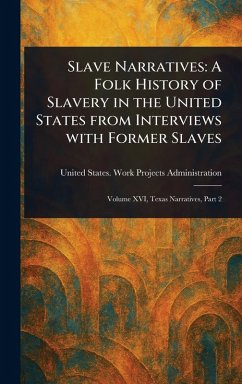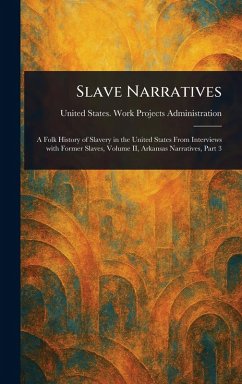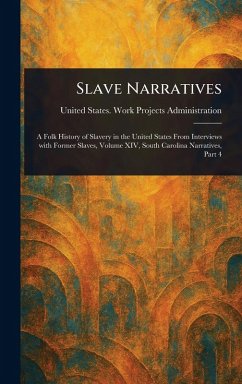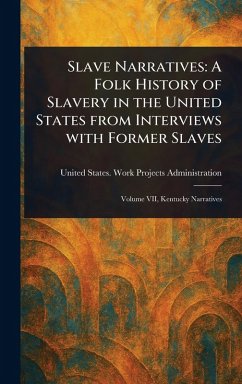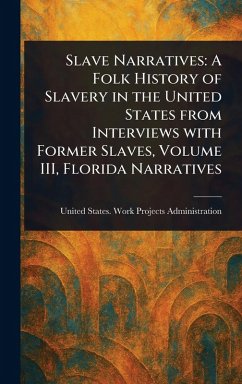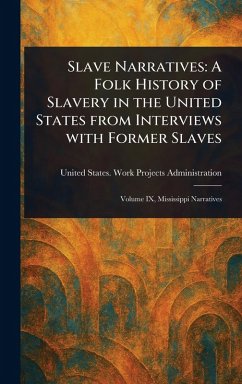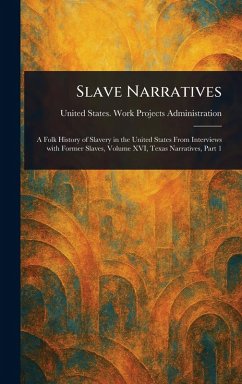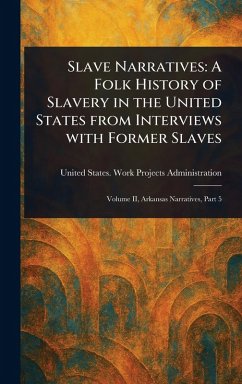
Slave Narratives
A Folk History of Slavery in the United States From Interviews With Former Slaves, Volume XVI, Texas Narratives, Part 3
Versandkostenfrei!
Versandfertig in über 4 Wochen
31,99 €
inkl. MwSt.

PAYBACK Punkte
16 °P sammeln!
"Slave Narratives: a Folk History of Slavery in the United States From Interviews with Former Slaves, Volume XVI, Texas Narratives, Part 3" offers a powerful and direct connection to a crucial period in American history. Compiled by the United States Work Projects Administration, this volume presents firsthand accounts of formerly enslaved African Americans in Texas. These narratives, part of a larger effort to document the experiences of slavery, provide invaluable insights into the daily lives, struggles, and resilience of individuals living under the institution of slavery. Through oral his...
"Slave Narratives: a Folk History of Slavery in the United States From Interviews with Former Slaves, Volume XVI, Texas Narratives, Part 3" offers a powerful and direct connection to a crucial period in American history. Compiled by the United States Work Projects Administration, this volume presents firsthand accounts of formerly enslaved African Americans in Texas. These narratives, part of a larger effort to document the experiences of slavery, provide invaluable insights into the daily lives, struggles, and resilience of individuals living under the institution of slavery. Through oral history, readers gain access to personal stories, offering a unique and unfiltered perspective on this dark chapter. This meticulously prepared volume is an essential resource for anyone interested in African American history, the history of slavery in the United States, and the social history of Texas. It stands as a testament to the enduring power of the human spirit and a vital contribution to our understanding of the past. A significant historical and biographical resource. This work has been selected by scholars as being culturally important, and is part of the knowledge base of civilization as we know it. This work is in the public domain in the United States of America, and possibly other nations. Within the United States, you may freely copy and distribute this work, as no entity (individual or corporate) has a copyright on the body of the work. Scholars believe, and we concur, that this work is important enough to be preserved, reproduced, and made generally available to the public. We appreciate your support of the preservation process, and thank you for being an important part of keeping this knowledge alive and relevant.





